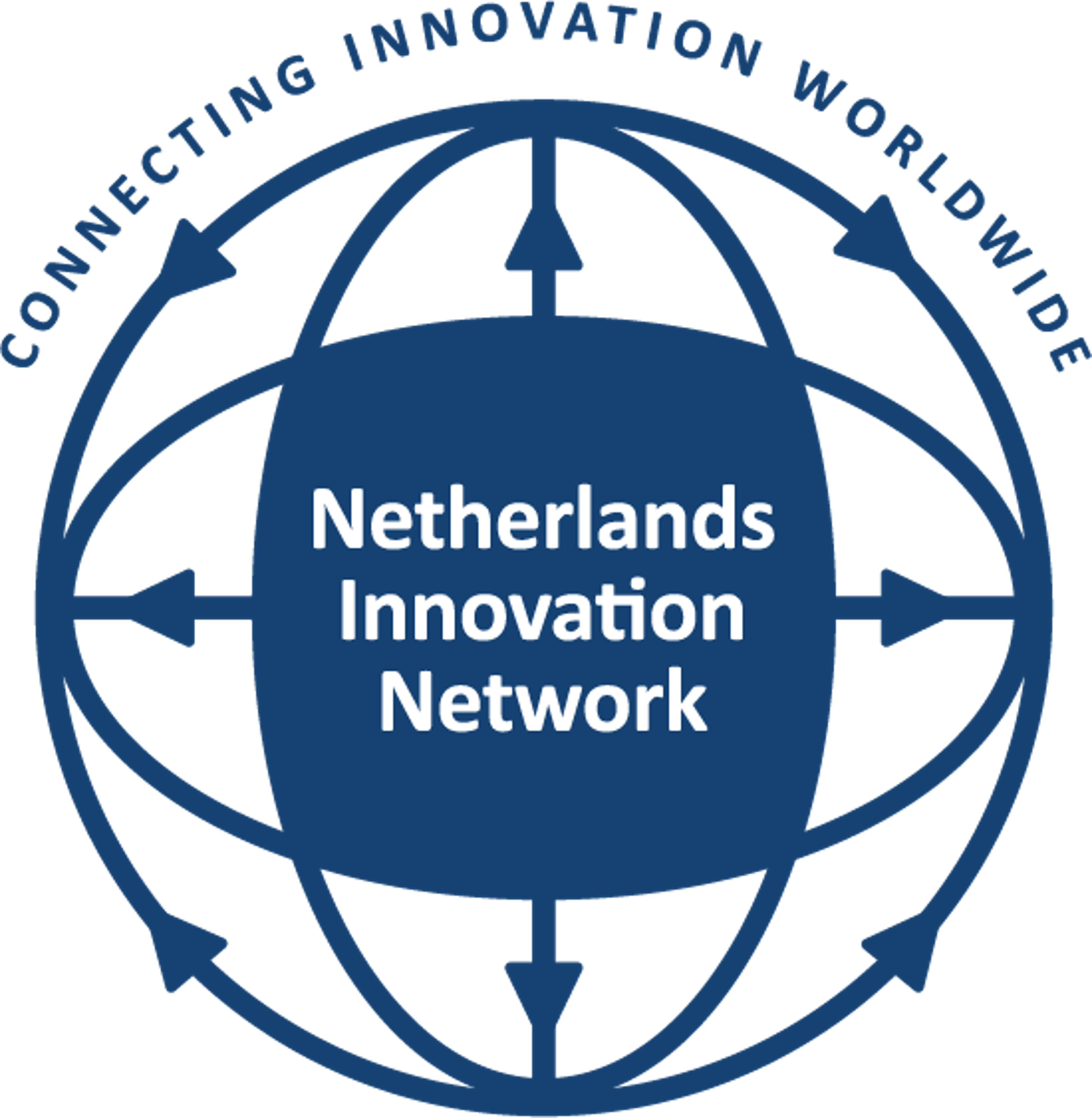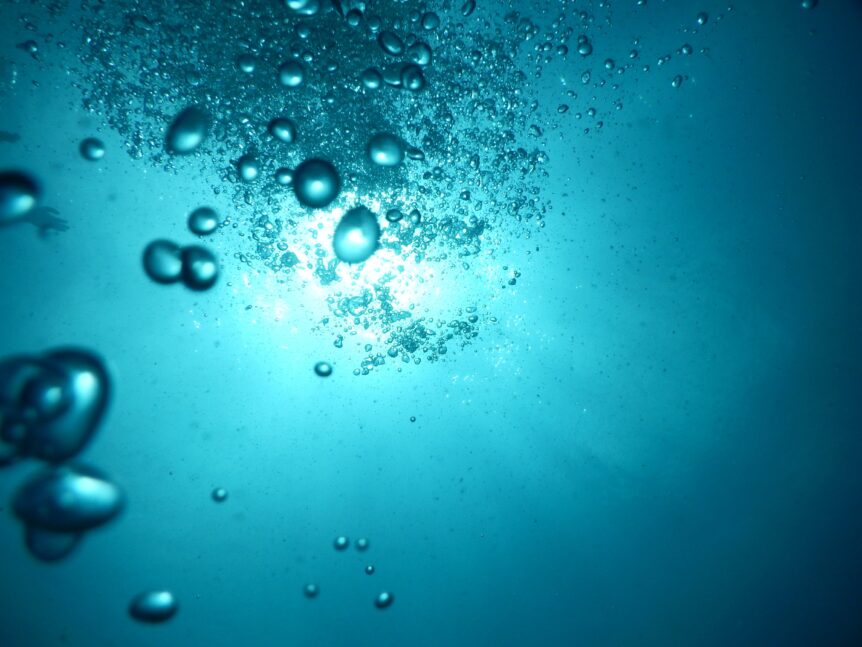NWO and the Chinese Academy of Sciences (CAS) have jointly funded four new projects in the China-Netherlands collaboration research program. These projects adopt an impact plan approach, specifically addressing challenges in drinking water supply and wastewater management. The consortia leading these projects are interdisciplinary, featuring involvement from both the private sector and civil society partners.
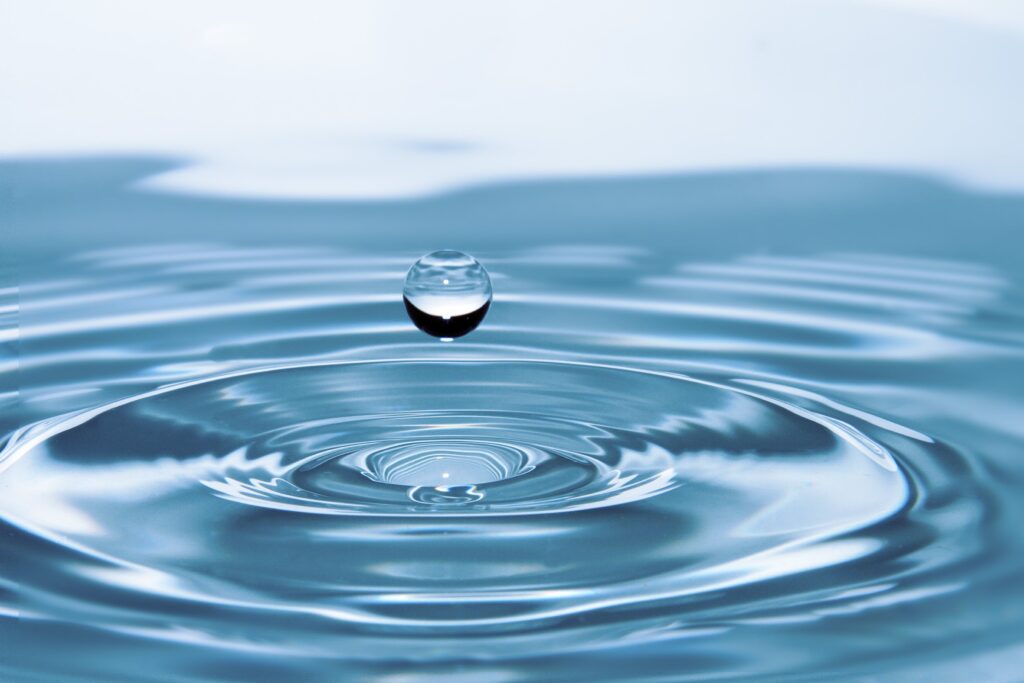
Netherlands and China both have ambitious climate goals to work towards the upcoming years, for example on the topic of water. Collaboration in the field of water goes long back. With the Netherlands as a front runner in the field of water management and China’s interest in water related solutions, there are many more opportunities to explore.
Four projects
The funding for the four projects comes from the ‘Green Water Processes’ call, which seeks to promote research on nature-based solutions for secure and sustainable drinking water supply and wastewater management in both urban and rural settings.
Project 1 – Water SMART: Drinking Water Solutions for organic Micropollutants using sustainAble and Robust Treatments
Project leaders: Dr. Nora Sutton (Wageningen University), Professor HU Chengzhi (CAS – Research Center for Eco-Environmental Sciences)
Consortium partners: Delft University of Technology, Waternet, Suzhou Water Supply Co. Ltd.
Water SMART addresses the challenge of producing drinking water from surface water containing organic micropollutants (OMPs) like pharmaceuticals and industrial chemicals. Existing OMP removal technologies are energy, chemical, and cost-intensive. The project aims to co-create a new toolbox of sustainable, green approaches for OMP removal, including nature-based technologies, optimized treatments to reduce energy and chemical usage, and efficient steering of OMP degradation through novel screening. Water SMART integrates its research outputs into decision support models developed in collaboration with the drinking water sector, ensuring the direct application of knowledge, technologies, and tools for sustainable and robust OMP removal during drinking water production.
Project 2- quifer Treatment as Green Purification Technology for Sustainable Drinking Water Supply (AQUIPURA)
Project leaders: Dr. Boris van Breukelen (Delft University of Technology), Professor LIU Gang (CAS – Research Center for Eco-Environmental Sciences)
Consortium partners: Wageningen University, KWR Water Research Institute, Oasen, CAS – Institute of Geochemistry, Shanghai National Engineering Research Center of Urban Water Resources, Technical Research Center of MaoTai Group, Harbin Water Supply Group Co. Ltd., Wuchang City Water Supply Center
AQUIPURA focuses on river bank filtration (RBF), a common nature-based method for producing drinking water from surface water. Often, energy-intensive post-treatment is necessary due to unreliable pollutant removal. AQUIPURA comprehensively investigates the removal of pollutants in RBFs, spanning from organic micro-pollutants to viruses. The project utilizes innovative mechanistic insights, monitoring, and modeling tools to enhance design and performance, ensuring a more reliable, contaminant-free, and environmentally friendly RBF system. AQUIPURA collaborates in a Chinese-Dutch transdisciplinary consortium, sharing knowledge to contribute to a green, nature-based, and climate-resilient drinking water supply.
Project 3 – FORward-looking Explorative modelling framework of WAste water management options for Resilient, sustainable Chinese and Dutch waters (FOREWARD)
Project leaders: Professor Arnold Tukker (Leiden University), Professor Zheng Yuming (CAS – Institute of Urban Environment)
Consortium partners: Wageningen University, Dutch-Sino Business Promotion B.V., CAS – Center for Agricultural Resources Research, Shengfa Environmental Protection Technology (Xiamen) Co. Ltd., Fujian Lanshen Environmental Corporation Ltd. Company, Zhongke Environment Research Institute (Jiaxing) Co. Ltd.
Wastewater from human and livestock sources poses risks to health, ecosystems, and the economy. Current wastewater management (WWM) is inefficient in energy and chemical usage, lacks flexibility for uncertain climate change impacts, and can be costly for less affluent regions. Existing assessment models for WWM options are often area-specific and regulatory-focused, limiting the realization of its full environmental and social benefits. The FOREWARD project aims to collaboratively develop new models and technologies with diverse stakeholders that are environmentally friendly, climate-resilient, cost-effective, and adaptable to different locations.
Project 4 – Intelligent Wastewater Treatment: Distributed Digital Twin for Clean Water (DDTclean)
Project leaders: Professor Alexander Lazovik (University of Groningen), Professor LIU Yuan (CAS – Chongqing Institute of Green and Intelligent Technology)
Consortium partners: University of Amsterdam, diTTo Engineering, CAS – Research Center for Eco-Environmental Sciences, Chongqing Academy of Science and Technology, Chongqing Haoyang Water Construction Management Co. Ltd.
DDTclean is dedicated to developing advanced wastewater treatment technologies. These innovative solutions involve intelligent wastewater management, utilizing electrochemical-membrane technologies and a scalable Artificial Intelligence-enhanced distributed Digital Twin framework for collection and treatment. The project tackles the challenge of low treatment efficiency in decentralized wastewater systems, while promoting communication and coordination among various stakeholders. Its goal is to enhance environmental quality, particularly in remote areas, and contribute to optimal system-wide operations.
Collaboration between NWO and CAS
The Netherlands and China have a successful, longstanding collaboration, addressing shared global societal challenges through innovative solutions. NWO and CAS initiated joint research programs in 2009, with a dedicated program since 2015, funding 16 projects in areas like ‘Brain & Cognition,’ ‘Green Cities,’ and ‘Vertical Farming.’
In 2018, NWO and CAS established a multi-annual programmatic cooperation in the broad field of ‘Eco-environmental Sciences.’ The CAS-NWO program aims to fund research with high scientific and societal impact, publishing an annual Call for proposals on a jointly agreed theme. The budget for the ‘Green Water Processes’ Call for proposals was €2,800,000 on the Dutch side, supporting four new projects with a four-year duration.
Growth Plan Water Technology
Water scarcity is globally recognized as one of the major threats to prosperity, as stated by the World Economic Forum. This means there is an opportunity for the export-oriented Dutch water technology sector. The Growth Plan Water Technology provides a significant boost to the expansion and export of the sector. The plan contributes to ensuring an adequate supply of clean water in the Netherlands, for drinking water, nature, and sectors that consume substantial amounts of water.
The Growth Plan addresses these significant societal challenges related to water availability and focuses on economic growth. The plan removes barriers to the growth and export of the water sector and related industries.
From research to further development, scaling up, and national and international exploitation, the Growth Plan covers the entire chain. Additionally, it enhances coordination within the sector and with other sectors, ensuring the flow of knowledge from theory to practice to profit. This is unique in the Netherlands.
Budget
The total project costs over 10 years amount to €342.5 million. In 2022, the advisory committee reserved a contribution of €135 million. In February 2023, this reservation was converted into an unconditional allocation.
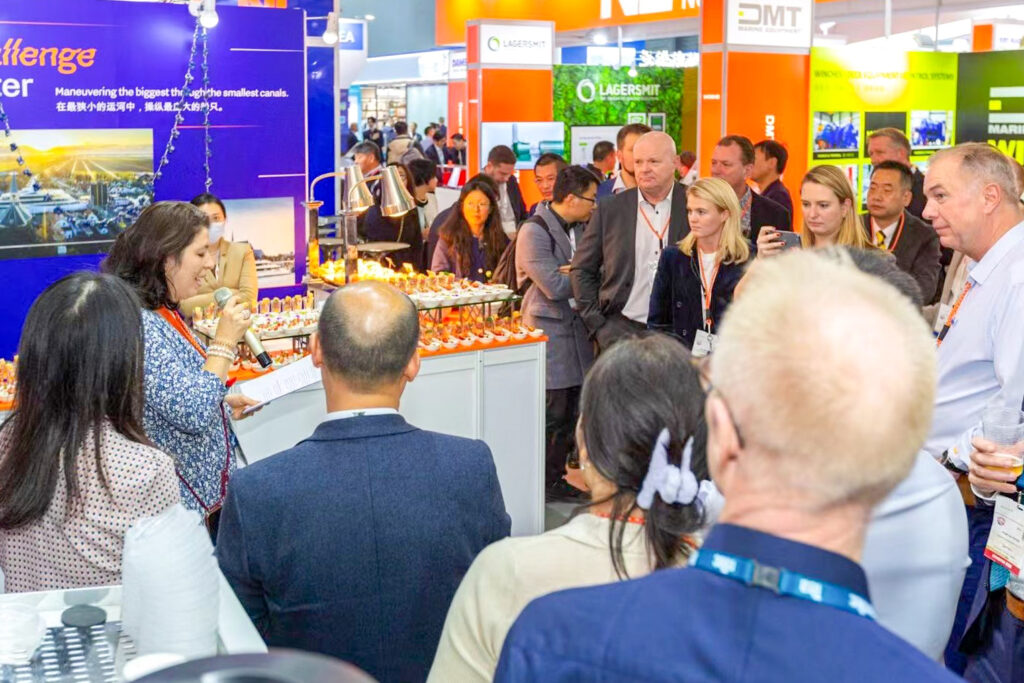
Sachi Claringbould, Deputy Consul General gives a speech at the Dutch Pavillion at Marintec, Shanghai.
Water initiatives – China and the Netherlands
For 30 years now, China and the Netherlands have closely collaborated on water initiatives. In 2023, a MoU was signed to continue this bilateral cooperation. The Netherlands’ relationship in this field has grown over the years, evolving from capacity building to an equal partnership based on mutual benefit. The focus is on finding solutions to shared problems, such as managing and maintaining dikes.
This is achieved through twinning – collaborating in areas facing similar challenges, like the partnership on the Huai River in China and the Rhine in the Netherlands. The partnership is also innovation-driven, relying on applied research and demonstration. The Dutch participation in the China Europe Water Platform is a logical extension, enriching bilateral work with China.
At a bilateral level, one might say that small is beautiful, benefiting both countries through the exchange of experts. Concerning the China Europe Water Platform, one might say that big is powerful, generating more support and achieving impact on a larger scale when EU countries, the European Commission, and China work together.
Within the Platform, the Netherlands is leading efforts on ‘Water and Urbanisation,’ focusing on water resilience in urban environments. This theme integrates water management, urban planning, and liveability, emphasizing climate adaptation.
An illustrative example is the China Europe Cooperation on Sponge Cities, which provided policy recommendations last year, demonstrating the added value of Chinese-European cooperation. There’s a lot to learn from each other in designing cities to deal with the effects of climate change, such as extreme weather, flooding, and subsidence.
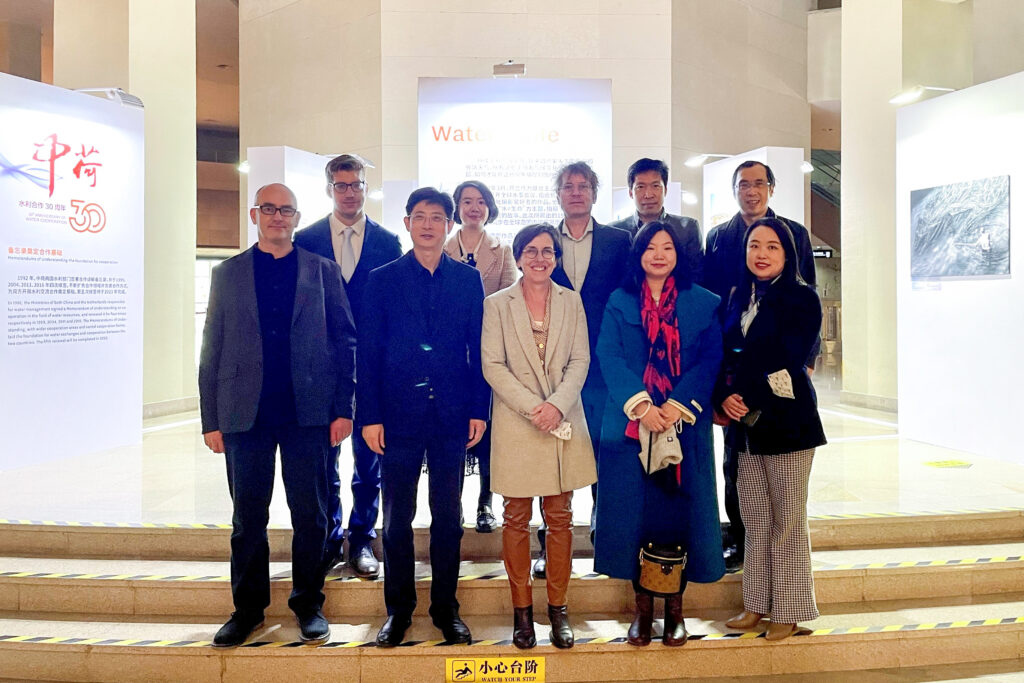
Water = Life photo exhibition and lectures in the National Watermuseum, Hangzho. With speakers from Wetsus, WNF China, Deltares, Tongji University Shanghai.
Collaboration between China and the Netherlands
TU Delft has longstanding collaborations in the field of water with various universities and institutes in China, particularly with SKLEC (State Key Laboratory of Estuarine and Coastal Research) at East China Normal University (ECNU) and Hohai University.
The partnership with SKLEC at ECNU began in the 1990s and gained momentum with the launch of the Programme Strategic Scientific Alliances (PSA) between China and the Netherlands in 2004. Through PSA projects, TU Delft and SKLEC, along with NIOZ (Royal Institute of Sea Research) and Tsinghua University, successfully completed projects in environmental sciences during the first two phases and are currently conducting a project in the third phase of PSA. These projects, funded by the Royal Academy of Sciences in the Netherlands and the Ministry of Sciences and Technology in China, have led to a close collaboration, evident in the DUO-degree PhD agreement between TU Delft and ECNU.
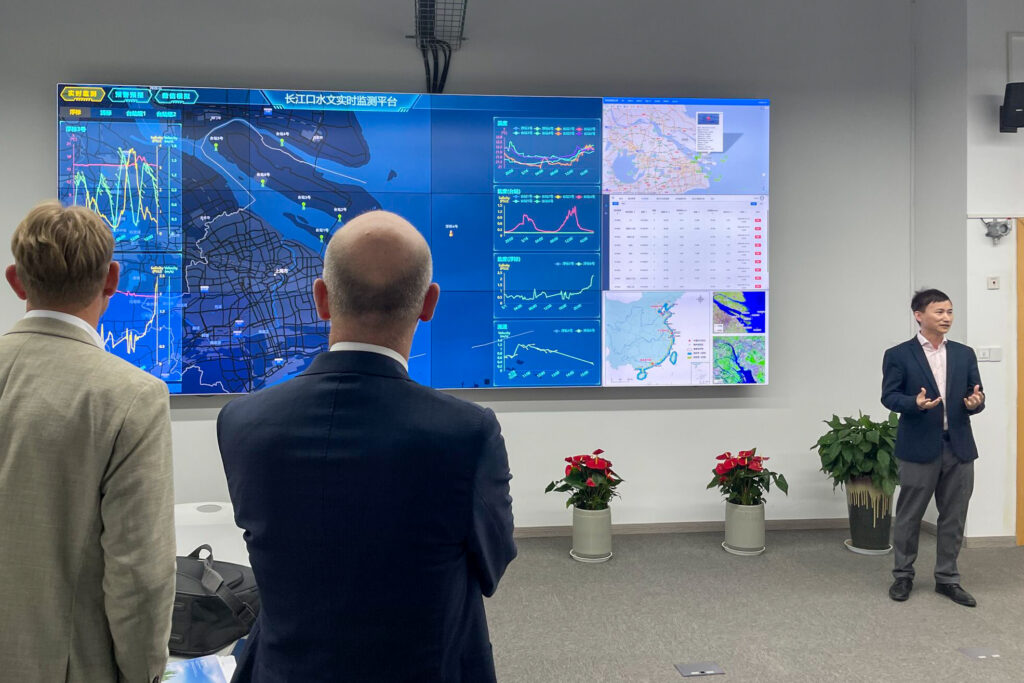
Visit of Michiel Sweers, Deputy Director-General for Enterprise & Innovation and Director of the Innovation & Knowledge Department at the Ministry of Economic Affairs and Climate Policy to the SKLEC Big Datalab at ECNU, Shanghai.
Hohai University, a water-focused institution in China, has a strong historical connection with TU Delft, with its former president, Prof. Yan Kai, graduating from TU Delft in the 1930s. TU Delft and Hohai University have operated a joint research center in water-related areas for many years, involving staff exchanges, joint courses on coastal dynamics, research projects funded by the Natural Science Foundation of China (NSFC), and co-supervision of PhD students.
Pujian Innovation Forum
In August 2022, the Pujiang Innovation Forum, with the Netherlands as the Guest Country Of Honour was organized in Shanghai. One of the sub-forums at the evebt was the Sino-Dutch Joint Innovation in Water Technology Sub-Forum. The Netherlands Innovation Network China and the Consulate General of the Kingdom of the Netherlands in Shanghai were deeply involved in the organization of this sub-forum together with Wetsus, the European centre of excellence for sustainable water technology.
The theme of the forum was: “Water Connects, Water Future” and several innovative topics were discussed in detail, such as: Sustainable water technology, blue energy generation, water extraction, water purification The forum discussed opportunities for collaboration in the field of water technology between the Netherlands and China. As important European centre of excellence for sustainable water technology, Wetsus talked about their innovation model and future projects in China.

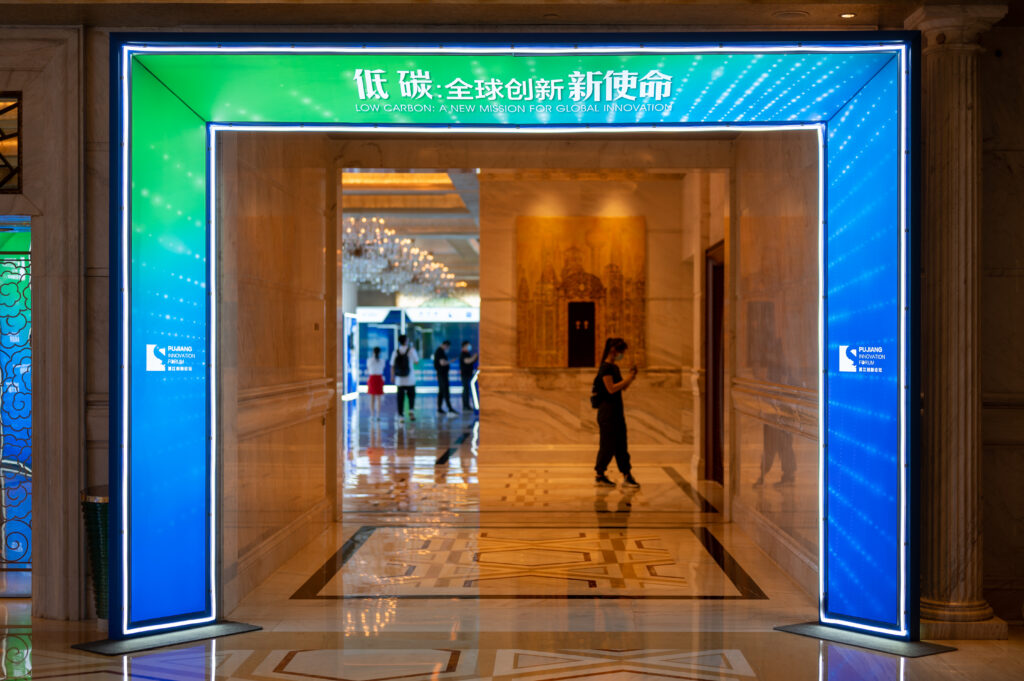
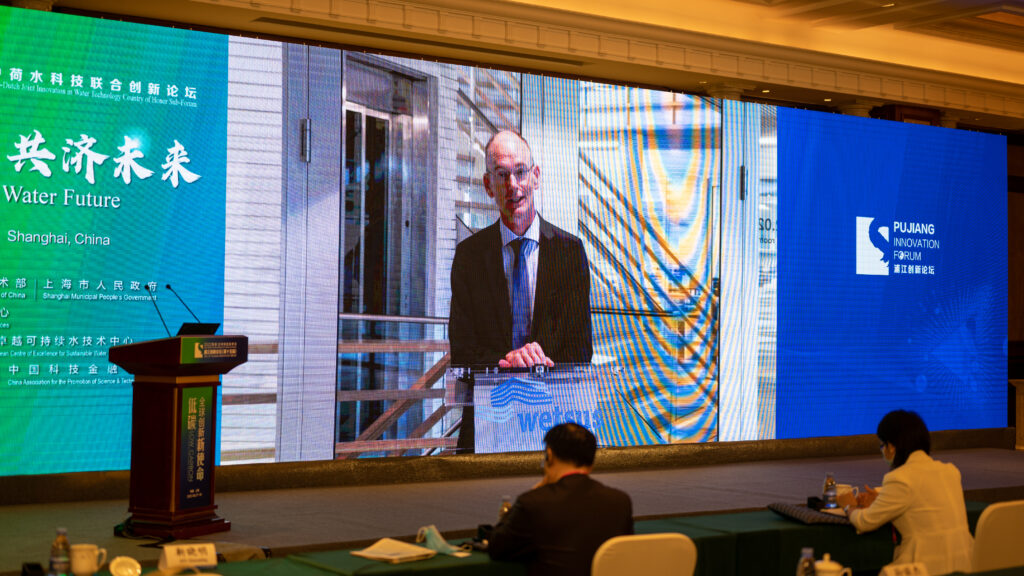
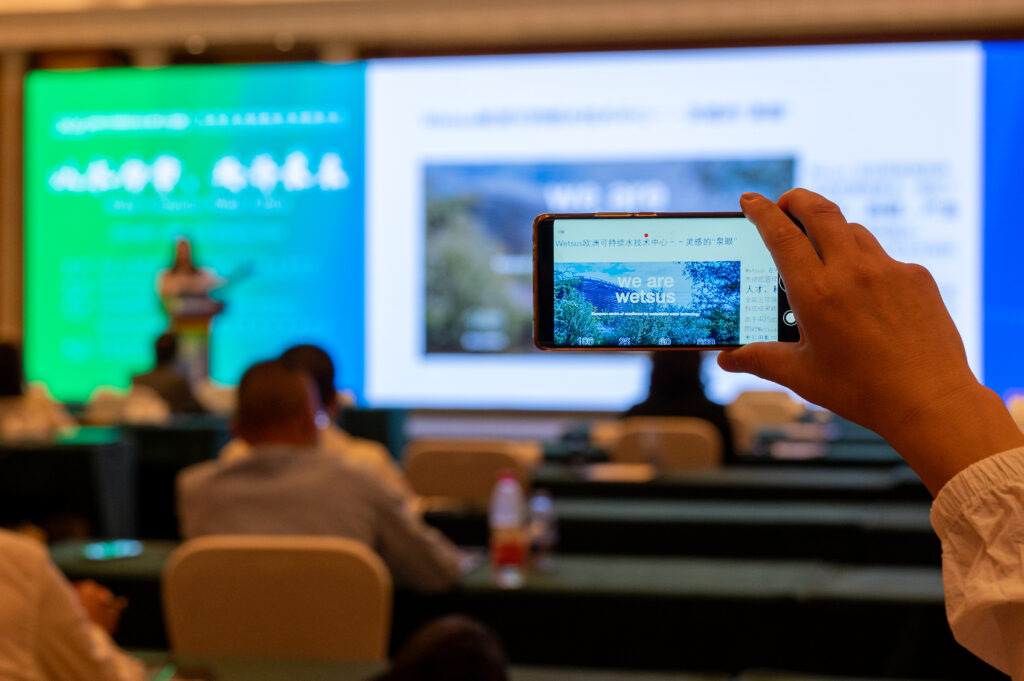
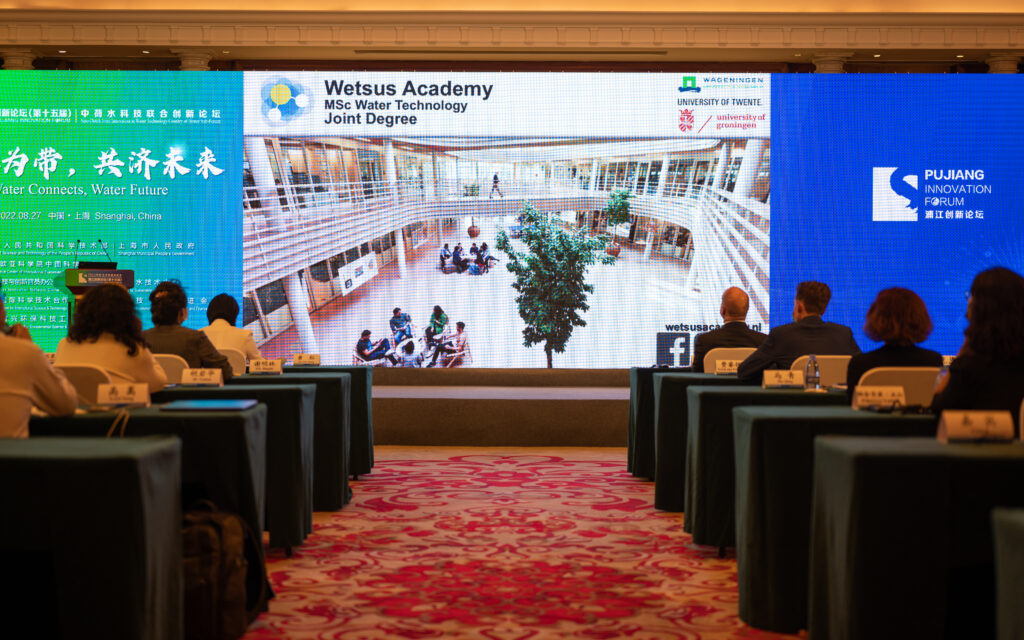
The Netherlands Innovation Network China continues to support innovative Sino-Dutch collaborations, like the Wetsus initiatives or the NWO-CAS research consortia. The Netherlands Innovation Network China looks forward to fostering more Dutch and Chinese connections centred around the theme of water in the coming year.
